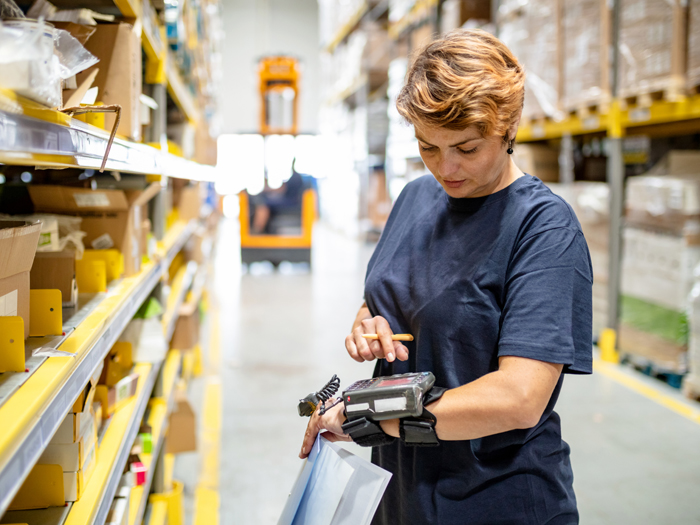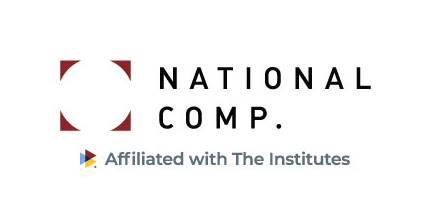How AI Could Shape the Future of Comp and What It Means for Injured Workers and Employers

In the fast-changing realm of workers’ compensation — which is already faced with such challenges as an ongoing labor shortage, technology shortfalls and legislative uncertainty — employers are constantly asking themselves how to better deliver positive outcomes for injured workers and considering which new technologies are going to be useful tools.
What tech tool is worth investing in? Is it AI?
Artificial intelligence — also known as machine learning — has gained widespread attention, particularly after March 2023, when ChapGPT 4 was released.
There is no doubt that AI will impact workers’ compensation (and virtually every other industry). How can workers’ comp professionals use it to help injured workers return to work, increase efficiencies and contain costs?
That question and many others will be addressed in the session “The Terminator or the Jetsons? How AI Could Shape the Future of Workers’ Comp.”
The interactive panel will feature four speakers who will delve into issues such as whether the time has come in workers’ compensation to adopt AI and other technologies that have been embraced by other business domains and whether can AI be used to close the innovation gap.
The panel will feature Paul King, chief client officer, and Cliff Belliveau, chief innovation officer, both of myMatrixx; Joel Raedeke, chief technology and data science officer for Broadspire; and Bob Martin, medical director for Summit Consulting.
AI in Our Industry
At its most useful, AI finds patterns and deviations in data. It utilizes pattern recognition to sift through mountains of data, which can help identify potential issues or problems much faster than humans can.
AI is already being used in the insurance industry in various ways, including pre-assessing claims, enabling automated fraud detection in claims using data analytics, the routing of initial claims and streamlining administrative processes.
The session will be interactive and geared toward the questions and concerns of professionals in a wide range of functions, including risk managers, representatives of carriers, managing general agents, managing general underwriters and anyone involved in workers’ compensation.
The panelists will be interested to hear and respond to attendees’ questions and concerns.
AI is already affecting everyone’s daily lives, and Raedeke said many employers are trying to figure out how AI can best be used in their businesses and industries.
“Most company leaders are aware of AI, at least through personal engagement with things like ChatGPT or capabilities that attempt to complete sentences within the iPhone, Gmail and Outlook,” he said.
These common uses don’t necessarily translate successfully to business uses.
“There can be a big gap between free consumer tools and enterprise-class services. Additionally, there can be a gap between integrated AI or machine learning services and business value,” he said.
Recognizing patterns might be one beneficial use of AI, but any technology has the potential for both positives and negatives, which will be another topic discussed in the session.
“Technology in all of its forms — including AI, if applied in a way that doesn’t honor the people involved — will almost always fail,” Raedeke said.
The needs of the many participants in workers’ compensation cases — including claimants, adjusters, clients, nurses, doctors, lawyers, regulators and carriers — will require consideration in the use of AI.
For any integration of AI to be positive, Raedeke said, it will need to create value for at least one of these various stakeholders and will not, at the same time, create value for one party while removing value for or the requirements of another.
“Creating value for people, and doing so for many different groups of people, requires research and design that rise above any given technology, including AI,” he said.
“Research and design are always first-order activities. Companies that don’t use ongoing research and design are likely to fail when they integrate AI.”
Panelists and attendees will delve into others’ questions and concerns about the use of AI, including security, user experience and the potential costs of incorporating the technology into their business practices.
“AI comes in many shapes and sizes, each with pros and cons, including cost, accuracy and functionality,” Raedeke said. “The right use of AI needs to be highly crafted to ensure sustainable value for the enterprise.”
Looking to the future, he says workers’ comp companies should be looking into and educating themselves about AI, and this panel is one way for attendees to start dipping their toes into researching the potential for AI.
“Extensive cross-functional research, experimentation and design is the most important preparation for any technology, including AI,” Raedeke said.
“Most companies skip past these things and go right to some integration, often optimizing for what will look good to showcase to shareholders or prospective buyers.”
Taking time to consider all that AI has to offer (or not) for people involved in the workers’ compensation world is a good move, he said.
“Rigorous research and design focused on existing clients and operators is critical to sustainable value creation with AI,” he said. &
 “The Terminator or the Jetsons? How AI Could Shape the Future of Workers’ Comp” will be held on Sept. 20 at 1 p.m. Learn more here.
“The Terminator or the Jetsons? How AI Could Shape the Future of Workers’ Comp” will be held on Sept. 20 at 1 p.m. Learn more here.











